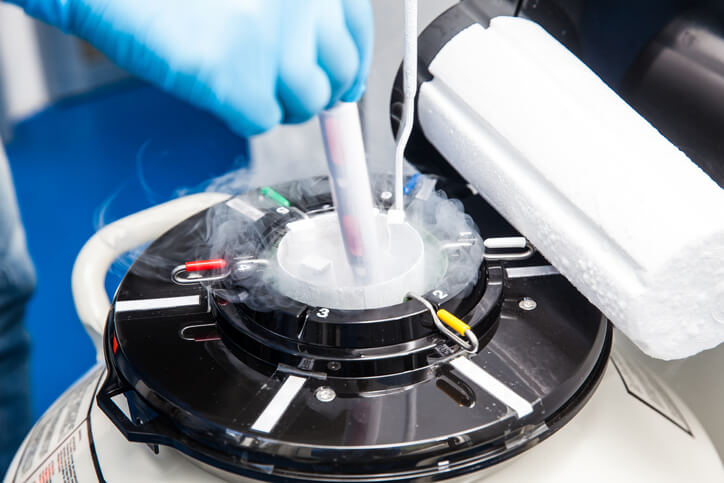Making the decision to become an intended parent or a surrogate means that you have many things to consider before you can take the leap. One of those is how your faith will play a role in your surrogacy journey.
As surrogacy continues to grow as a popular way for hopeful couples to grow their families and for hopeful surrogates to bless a couple with the gift of a child, the opinion on what is acceptable within a certain faith continues to change, too. Now, there are more and more people who can recognize the blessing of a family, no matter how that family was formed.
As you start your journey, we know that you’ll have a lot of questions about how to include your faith in growing a family through surrogacy. We hope that these tips can reassure you and give you the courage you need to take your first step towards this family-building process.
And if you’re looking for someone to talk to, you can always reach out to one of our specialists at 1-800-875-2229 to get more information, or you can consult a faith-based surrogacy agency for additional resources.
What Does Religion Have to Say About Surrogacy?
If you are someone with a strong faith, then you likely have a lot of questions about how your beliefs will be a factor in your surrogacy journey. And depending on what your specific religion has to say about assisted reproductive technology, you might be left with many questions about what to do next.
Every religion has its own opinion about surrogacy and sometimes IVF. Additionally, your religious leaders and congregation might have their own interpretations about how surrogacy fits into your religion.
When you are thinking about ways that surrogacy can fit into your religion, try to remember that religious views on surrogacy are still changing. While many religions were established thousands of years before surrogacy or IVF were thought about, there is still room and time for opinions to evolve. If you are worried about what your particular faith has to say about your decision, we encourage you to reach out to either a trusted religious leader or another family who understands what you’re going through.
3 Ways Faith Plays a Role in Surrogacy
Religion can connect us in many different ways. But you might be surprised to find that there are actually a few ways in which faith can play a role in your surrogacy journey. Here are just a few to think about.
- Surrogacy itself requires a leap of faith: Surrogacy is an incredible way to expand a family, but it’s definitely not a process that’s quick or easy. When you decide to start this journey, there are a lot of people on whom you’ll rely to make this process as smooth as possible. This can be especially true when you’re an intended parent, as you’ll be spending a lot of time waiting and putting your faith in your surrogate. When so many factors are out of your control, being patient and holding onto faith is one of the best things you can do.
- Your faith can connect you to other families: It might seem like you don’t have anyone to reach out to, but there are plenty of families in your position who have either thought about starting their surrogacy journey or are getting started just like you. Additionally, you’ve probably considering looking for a match with a gestational surrogate who shares your beliefs. While there could be a wait to find the right person, it will be well worth it in the end.
- It’s one of the greatest ways to help others: There are many reasons why women choose to become surrogates. But one of the many reasons is because becoming a surrogate is spiritually and emotionally rewarding or fulfilling, and offers an opportunity for them to give back in some way.
Coming to Terms with Surrogacy and Your Religious Beliefs
It’s difficult to become fully excited about this process if you’re worried about how it could clash with your beliefs. After all, even though you’ve likely thought about this process for a long time, your faith has likely been a part of your life for even longer.
If you’d like someone to talk to about how your faith can impact your experience with the surrogacy process, you can always reach out to one of our specialists. There are also several faith-based surrogacy agencies, like Surrogacy by Faith, which you can always reach out to if you’re looking for more information.
—
We know that you already have a lot to think about before you start your journey. But before you can be sure that surrogacy is right for you, it’s important to consider your faith as well. So, no matter what your final decision ends up being, we just want you to make the best choice for you. If you have any questions at all about what your next step should be, you can always reach out to your surrogacy specialist for help.




